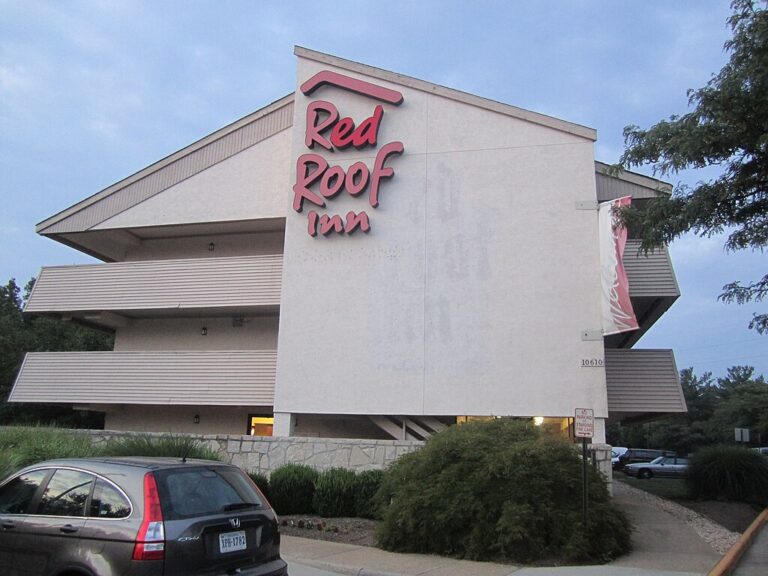
Understanding the Do Not Rent List in Hotels
Table of Contents
ToggleThe term “do not rent list hotel” or “DNR list” has become a buzzword in the hospitality industry. But what does it entail? How does it influence you as a hotelier or a guest? Let’s dive deeper into this fascinating subject.
Decoding the Do Not Rent List in Hotels
The “do not rent list” in hotels, also known as the “ban list” or “blacklist”, is a record maintained by hotel management of individuals who have previously caused issues during their stay. These issues can range from non-payment and property damage to disruptive behavior.
The Rationale Behind the blacklist
Hotels maintain a “do not rent list” as a protective measure to safeguard their property, staff, and guests. It serves as a preventive strategy to circumvent potential issues that could tarnish the hotel’s reputation or result in financial loss.
The Legal Landscape of the Do Not Rent List
Understanding the legal landscape surrounding the “do not rent list” is crucial for both hoteliers and guests. Let’s delve into this aspect.
The Legality of the DNR List
 Yes, hotels have the right to refuse service to anyone as long as they do not violate anti-discrimination laws. However, the reasons for refusal must be valid and not based on race, religion, gender, or nationality.
Yes, hotels have the right to refuse service to anyone as long as they do not violate anti-discrimination laws. However, the reasons for refusal must be valid and not based on race, religion, gender, or nationality.
The Implications of Being on the Ban List
Being on the “do not rent list” means that the hotel has decided not to provide you with their services. This decision is usually due to past negative experiences with the guest.
How Hotels Manage the Do Not Rent List
Managing the “do not rent list” can be a challenging task for hotels. Let’s explore how they handle this list.
Tracking the Blacklist
 Hotels typically keep track of the dnr list through a list of names or pictures of guest faces displayed in the staff area or stored in their Property Management System (PMS). However, this method has its downsides. It’s challenging for front desk staff to remember or recognize faces, leading to potential problems. Profile matching can also be unreliable if it’s even available in the PMS.
Hotels typically keep track of the dnr list through a list of names or pictures of guest faces displayed in the staff area or stored in their Property Management System (PMS). However, this method has its downsides. It’s challenging for front desk staff to remember or recognize faces, leading to potential problems. Profile matching can also be unreliable if it’s even available in the PMS.
The Challenges of Managing the Do Not Rent List
Managing the do not rent list can be a daunting task for hotels. The process requires careful monitoring and updating to ensure accuracy. It also requires training staff to recognize individuals on the list, which can be difficult and time-consuming.
How to Evade the Do Not Rent List
Evading the dnr list is simple. Here are some guidelines to ensure a pleasant stay at any hotel.
Respecting Hotel Property and Staff
Respecting the hotel’s property and staff is the first step to maintaining a good relationship with any hotel. This includes following the hotel’s rules and treating staff with courtesy.
Prompt Payment of Bills
Non-payment is a common reason for guests ending up on the “do not rent list”. Always ensure that you settle your bills promptly to avoid any misunderstandings.
Reporting Issues: Your Voice Matters
At the Guest Ban Issue Registry, we believe that every guest’s voice matters. Reporting issues not only helps you share your experiences but also contributes to a more transparent and accountable hotel industry. Whether it’s a minor inconvenience or a major concern like bed bugs, your report can make a significant difference. By reporting your issue, you help other guests make informed decisions and encourage hotels to maintain high standards of service. Remember, your comfort is our priority, and every report brings us one step closer to ensuring comfortable and enjoyable hotel stays for all.
Do Not Rent List in Hotels
Frequently asked questions
To report an issue, click on the 'Report an Issue' button on our issue registry, fill out the form with the relevant details, and submit.
Yes, a hotel can legally refuse to rent to someone as long as it does not violate anti-discrimination laws.
Hotels do not typically inform guests if they are on the "do not rent list". However, if you're repeatedly denied service without a valid reason, you may be on the list.
Yes, you can appeal to the hotel management if you believe you've been unfairly placed on the "do not rent list". It's best to address any issues directly and promptly.
The duration a person stays on the "do not rent list" varies from hotel to hotel. Some hotels may remove guests from the list after a certain period, while others may keep them indefinitely.
There's no law preventing hotels from sharing their "do not rent list".
By respecting hotel property, paying your bills on time, and treating staff with respect, you can ensure you never end up on the "do not rent list".
The do not rent list hotel is a tool used by hotels to protect their interests. As a guest, understanding this list and how to avoid it can ensure a smooth and enjoyable hotel experience. Remember, respect and courtesy go a long way in any situation, including your stay at a hotel.
















